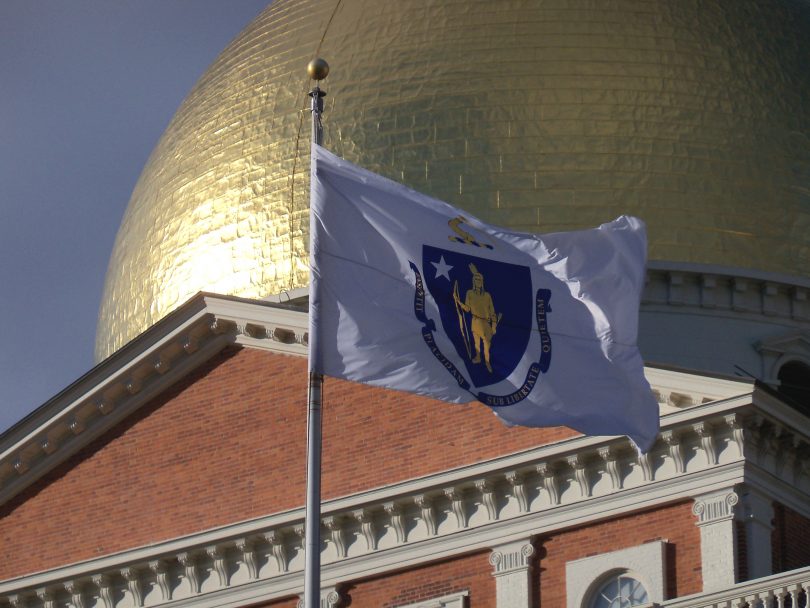By Christian Metzger
Boston University News Service
House lawmakers rejected a proposed change in legislative rules Wednesday that advocates said would have increased transparency.
The change would have made the details of all committee votes public and required that public testimony on bills be available to the public upon request.
State Reps. John Barrett III, D-North Adams; Paul Mark, D-Peru; Tricia Farley-Bouvier, D-Pittsfield; and William “Smitty” Pignatelli, D-Lenox, joined the majority in the 122-36 vote against an amendment that would have aligned the House language on committee votes and testimony with the Senate’s proposal, which advocacy groups such as Act on Mass have said provide constituents with better information.
Opponents of the change said making testimony public could dissuade people from providing information that might be sensitive.
Massachusetts is one of four states where the Legislature is exempt from the open records laws and is the only state where all three branches of government claim are not liable under disclosure law.
“To the members, especially the newest members, you may know that over the last several months there has been a pledge that a group was lobbying for folks to take. And I just want to point out that this amendment does not reflect that pledge,” Farley-Bouvier said in a speech before the Legislature.
Act on Mass garnered 20 signatures from House members committing themselves to make their votes and committee proceedings available to the public.
There have been growing tensions between the House and advocacy groups, which have been critical of what they see as a lack of transparency.
“Members and staff should be readily aware of who they are meeting with, which external groups comprise a coalition, and how those groups are funded,” House Speaker Ronald Mariano, D-Quincy, wrote in a January email to House members.
“We live in the land of unintended consequences,” Farley-Bouvier said. “If you think you’re voting to uphold the pledge, you also need to understand that you’re voting to make all committee testimony public with no protections for any sensitive testimony.”
The sensitivity question was a major point of contention for members, who worried that making their proceedings public would intimidate people with sensitive information and dissuade them from coming forward.
“I truly fear that if people were fearful that their testimony would be posted on a public website, it would have the opposite effect of bringing people into the process — it would scare them away from the process,” said Rep. Sarah Peake, D-Provincetown. “It would have a chilling effect on people’s willingness to offer testimony.”
Peake said making committee votes and testimony public also would cause confusion among constituents and create a burden on their staffers.
“Yes, people need to know where we stand on legislation, but you don’t really know what a bill looks like until it hits the floor,” she said.
Rep. Erika Uyterhoeven, D-Somerville, advocated for the bill on the debate floor, arguing that the amendment did not put testimonies online and could be provided in redacted form on request, to protect the individuals involved.
The first-term lawmaker, making her first official address before the full legislative body, was one of the 20 representatives who signed the pledge with Act on Mass, which Uyterhoeven co-founded in 2018. Uyterhoeven also argued that confusion over committee votes should not be a roadblock to transparency.
“That is something I believe is our job as representatives to educate our constituents on,” she said. “I want to also caution my colleagues around the argument that somehow transparency is somehow going to thwart progressive legislation and what that means. Because underlying that is saying that we have to do our work behind closed doors. I believe that’s an unfortunate and sometimes elitist argument, to say that we cannot show our votes to our constituents.”
It is lack of transparency, she argued, that has held up any new significant science-based climate legislation from passing for over a decade in the Legislature since the Global Warming Solutions Act of 2008.
“They’re not elitist arguments,” Peake said in response. “They’re shared experiences from experienced — and yes — effective legislators.”
“Committees are incubators — they’re incubators of ideas. It’s where we vet what is in a bill, it’s where we sharpen our pencils, and we make changes. It’s in the committees where we invite the public into the public hearing process,” Peake said.
Farley-Bouvier expressed a willingness to work to increase transparency through other means, siding with Mariano. She also argued that the issue was a lack of clarity as to where to find information like committee votes, which she said were all posted online on the government’s website.
“I also look forward to the process the speaker has sped up for a full review of the House rules,” she said. “Let’s see what things that can be changed that will make a real difference. I plan to make my voice heard in that process.”
This article was previously published in The Berkshire Eagle.








